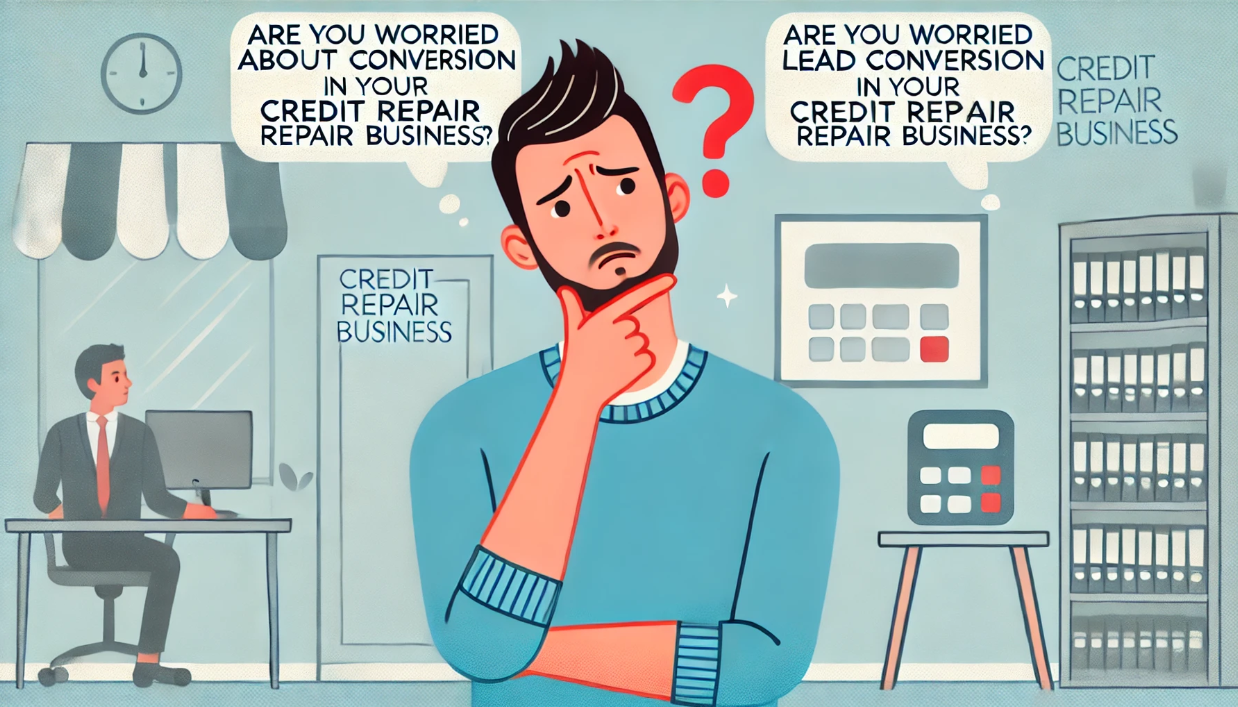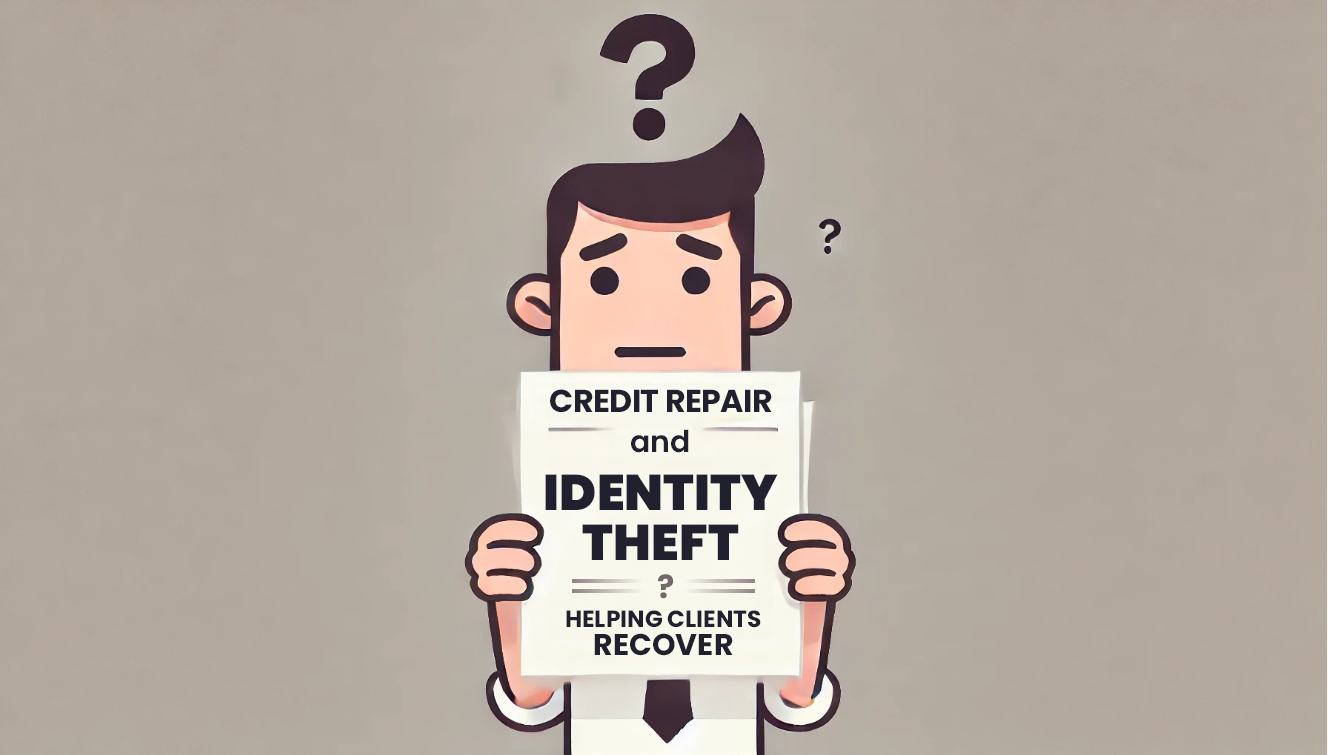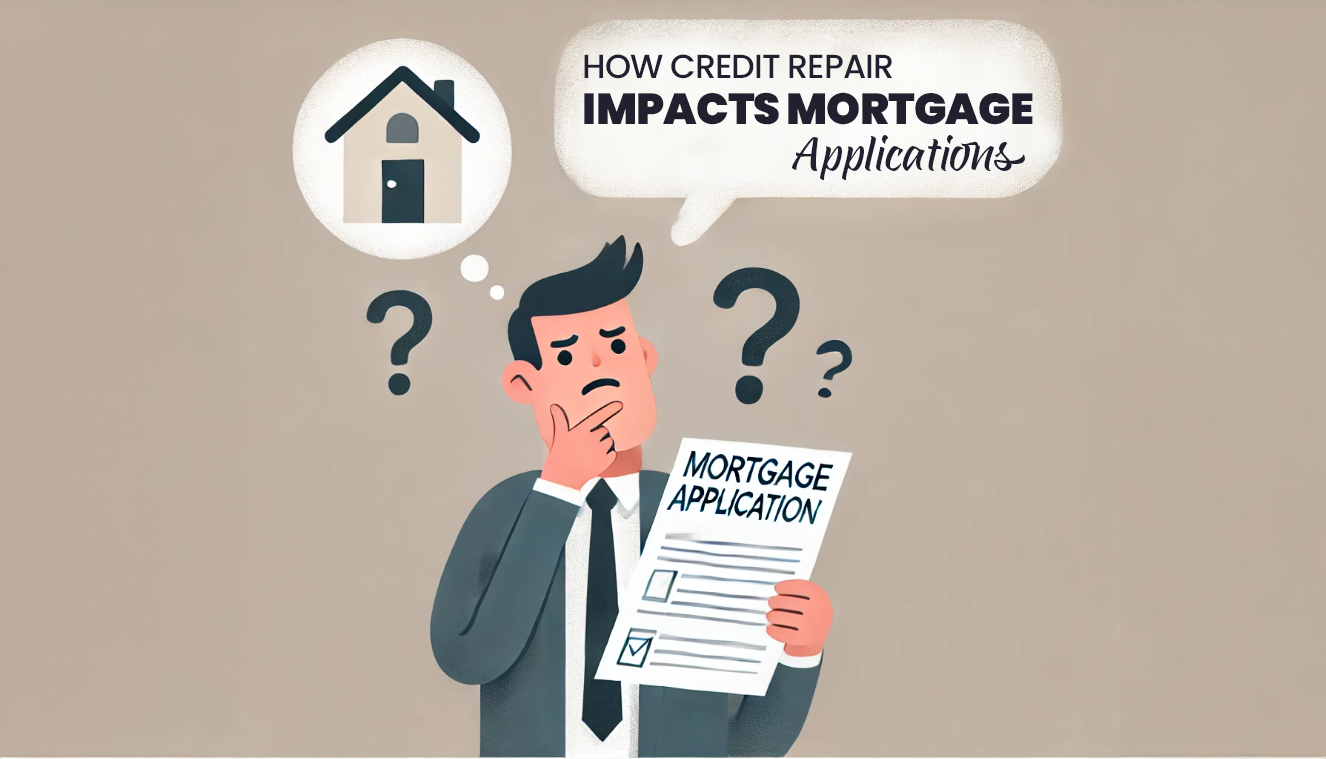Debt Settlement vs. Credit Repair: Right Solution for Clients
In today’s financial landscape, managing debt effectively and maintaining a healthy credit score are pivotal to ensuring long-term financial stability for individuals and businesses alike. For credit repair businesses, understanding the intricacies of both debt settlement and credit repair is essential to providing clients with the best possible advice and services. This blog aims to delve deep into the comparative analysis of debt settlement versus credit repair, guiding credit repair businesses on choosing the right solution for their clients based on a thorough understanding of each approach.
The Importance of Debt Management and Credit Repair
Debt management and credit repair are two fundamental aspects that significantly influence an individual’s financial health. Effective debt management involves strategies to handle outstanding debts in a way that minimizes the financial burden on the debtor, often through negotiation with creditors to settle debts for less than the total amount owed. On the other hand, credit repair focuses on identifying and rectifying inaccuracies or outdated information in credit reports, improving credit scores, and advising clients on practices that foster creditworthiness.
Both debt management and credit repair can lead to more favorable financial conditions, such as lower interest rates on loans, better chances for loan approval, and increased negotiating power. Furthermore, a healthy credit score can impact other aspects of life, including employment opportunities, rental applications, and insurance premiums, making the services offered by credit repair businesses crucial for comprehensive financial health.
Introduction to Debt Settlement
Debt settlement is a negotiation process where a debtor reaches an agreement with their creditors to pay off a significantly reduced amount of their total debt. This process is often facilitated by debt settlement companies that negotiate with creditors on behalf of the debtor. It is typically considered by individuals facing significant financial hardship who cannot keep up with their minimum payments. While debt settlement can reduce the total debt load and potentially accelerate the path to financial freedom, it may also negatively impact credit scores in the short term and require careful consideration of the debtor’s financial situation.
Introduction to Credit Repair
Credit repair involves a detailed examination of credit reports from the three major credit bureaus to identify any errors, discrepancies, or outdated information that may be unfairly lowering the client’s credit score. Once these inaccuracies are identified, credit repair professionals work on behalf of their clients to dispute incorrect information and ensure their credit reports accurately reflect their financial behavior and borrowing history. The goal of credit repair is to improve the client’s credit score, thereby enhancing their overall financial opportunities.
This blog will further explore each of these areas, highlighting how credit repair businesses can leverage these strategies to offer tailored, effective advice and services to their clients. We will look at the tools, education, and legal considerations integral to both debt settlement and credit repair and provide a framework for deciding which strategy might be most appropriate in various client scenarios.
Understanding Debt Settlement
Debt settlement is an important option for those struggling under the weight of unmanageable debt. This section will cover what debt settlement entails, how it functions, and the crucial considerations for credit repair businesses advising on this strategy.
Definition and How Debt Settlement Works
Debt settlement also known as debt negotiation, involves negotiating with creditors to settle a debtor’s outstanding debts for a payment that is typically less than the full amount owed. This approach is generally used by individuals who find themselves unable to make minimum payments, potentially facing the prospect of bankruptcy. The process begins when a debtor or their representative (such as a debt settlement company) approaches creditors to negotiate a lump-sum payment that, once paid, will be considered as settling the debt in full. This lump sum is usually a percentage of the total debt owed.
The debt settlement process typically involves the debtor setting aside funds in a separate account during the negotiation period. Instead of making monthly payments to creditors, the debtor contributes a monthly sum into this account, which will eventually be used to offer a one-time payment to settle the debt. During this period, creditors may continue to add fees and interest, although some may choose to halt additional charges as negotiations progress.
Key Considerations for Credit Repair Businesses When Advising on Debt Settlement
Credit repair businesses must consider several factors when advising clients on debt settlement:
-
Client’s Financial Stability
Assess whether the client has sufficient financial instability to necessitate debt settlement, or if other avenues like debt consolidation or credit counseling might be more suitable.
-
Impact on Credit Score
Inform clients that debt settlement can negatively impact their credit score. Settled debts are often reported as “paid-settled” rather than “paid in full,” which can be less favorable for future credit applications.
-
Long-term Financial Goals
Consider the client’s long-term financial goals. If purchasing a home or taking out significant loans is a future possibility, the negative implications of debt settlement on credit reports must be carefully weighed.
-
Potential for Lawsuits
Creditors might choose to file lawsuits for the recovery of the full debt amount, particularly if the settlement process is prolonged.
-
Tax Implications
Forgiven debt through settlement can be considered taxable income, except in cases of insolvency.
Pros and Cons of Debt Settlement from a Business Perspective
Pros:
- Rapid Reduction in Debt:
Clients can significantly reduce the total debt owed, often in a shorter period than with debt consolidation.
- Avoidance of Bankruptcy:
Debt settlement can be a viable alternative to bankruptcy, which has a more severe and longer-lasting impact on credit scores.
Cons:
- Credit Score Impact:
The negative effect on a client’s credit score can be substantial, as settled debts do not reflect as positively as debts paid in full.
- Increased Client Risk:
There’s a risk of lawsuits from creditors, as well as increased fees and interest if the negotiation process is drawn out.
- Client Retention:
Clients may view the credit damage as a negative consequence of using a credit repair service, which could affect client retention and referrals.
Exploring Credit Repair
Credit repair is a vital service for individuals looking to improve their financial standing and resolve inaccuracies in their credit reports. This section will delve into what credit repair entails, the mechanisms behind it, its role in financial management, and the advantages it offers to clients.
Definition and Mechanisms of Credit Repair
Credit repair involves a thorough examination and rectification process aimed at correcting errors and outdated information on a client’s credit report. Credit reports, compiled by credit bureaus such as Equifax, Experian, and Transunion, document a person’s credit history and are used by lenders to determine creditworthiness.
The process of credit repair includes several steps:
- Obtaining Credit Reports: Clients must first obtain their credit reports from all three major credit bureaus.
- Identifying Inaccuracies: Review the credit reports to identify any discrepancies, such as payments incorrectly marked as late, duplicate accounts, or erroneous personal information.
- Disputing Errors: Once inaccuracies are identified, credit repair professionals prepare and send dispute letters to the credit bureaus or directly to the creditors. These letters formally request the correction of the errors.
- Following Up and Monitoring: After disputes are submitted, credit repair professionals monitor the progress and ensure that corrections are made. The process may involve several rounds of correspondence and can take time.
The Role of Credit Repair in Financial Management
Credit repair plays a crucial role in financial management by helping individuals maintain accurate and fair credit reports, which are essential for a healthy financial profile. Accurate credit reports ensure that credit scores are a true reflection of an individual’s credit behavior, which influences:
- Loan Eligibility and Interest Rates: Better credit scores typically qualify individuals for better loan terms and lower interest rates.
- Housing Opportunities: Landlords often check credit scores when evaluating rental applications.
- Employment Opportunities: Some employers review credit scores as part of the hiring process, especially for positions that involve financial responsibilities.
Advantages of Credit Repair Services for Clients
Credit repair services offer several key advantages:
-
Improved Credit Scores:
By correcting inaccuracies in credit reports, credit repair can result in higher credit scores, which opens up better financial opportunities for clients.
-
Financial Education:
Many credit repair businesses provide education and resources to help clients understand credit reporting and financial management better, fostering long-term financial health.
-
Customized Dispute Assistance:
Credit repair professionals are adept at handling disputes and understand the legal intricacies of credit reporting, which can be daunting for the average consumer to tackle alone.
-
Stress Reduction:
Managing credit report inaccuracies can be stressful and time-consuming. Credit repair services alleviate this burden, allowing clients to focus on other financial goals.
Credit Repair Education
Educational aspects of credit repair services are crucial for both clients and the professionals serving them. Education empowers clients to take proactive steps in managing their credit while ensuring that credit repair specialists are equipped with the latest information and techniques in the industry. Topics covered often include:
- Understanding Credit Scores:
What they are, how they are calculated, and their impact.
- Legal Rights:
Educating clients about their legal rights regarding credit reporting and fair debt collection.
- Financial Management Skills:
Budgeting, debt management, and planning for future credit use.
Tools of the Trade: Credit Repair Business Software
For credit repair businesses, leveraging the right tools, particularly credit repair business software and customer relationship management (CRM) systems, is crucial for efficiency, compliance, and client satisfaction. This section delves into the importance of these tools, the features to look for, and how they integrate into business operations.
Importance of Credit Repair CRM and Software in Managing Client Data
Credit repair CRM and business software play pivotal roles in managing the vast amounts of data involved in credit repair services. These tools are designed to handle client information securely, track the status of disputes, and ensure consistent communication with clients. Effective data management is critical for operational efficiency and compliance with regulations such as the Fair Credit Reporting Act (FCRA) and the General Data Protection Regulation (GDPR).
Key benefits of using specialized CRM and software in credit repair include:
-
Efficiency in Data Handling:
Automation of routine tasks such as data entry, dispute generation, and follow-ups, which reduces errors and saves time.
-
Enhanced Security:
Robust security measures to protect sensitive client information from unauthorized access or breaches.
-
Improved Client Communication:
Integrated tools for scheduling, reminders, and personalized communication that enhance client engagement and satisfaction.
-
Performance Tracking:
Analytics and reporting tools that help businesses monitor their performance, track dispute outcomes, and refine strategies.
Features to Look for in Credit Repair Business Software
When selecting credit repair business software, it’s important to consider features that will support comprehensive service delivery and business management. Essential features include:
-
Dispute Management
Capability to generate, send, and track dispute letters automatically. The software should also store copies of correspondence for record-keeping.
-
Client Portal
A secure client portal that allows clients to view their case status, communicate with credit repair agents, and upload documents securely.
-
Automation Tools
Features that automate repetitive tasks like reminders, email marketing, and reporting to streamline operations.
-
Compliance Management
Built-in compliance checks to ensure that all operations are in line with industry regulations.
-
Integration Capabilities
Ability to integrate with other tools such as email platforms, accounting software, and other business management tools.
-
Scalability
The software should grow with your business, capable of handling an increasing number of clients and larger data volumes.
-
Customization
Options to customize workflows, templates, and communications to match the specific needs of the business and its clients.
How Software Tools Integrate with Business Operations
Credit repair business software is not just a standalone tool but a part of the broader business ecosystem. It integrates with various aspects of business operations to enhance overall productivity and client service.
-
Client Intake and Onboarding:
Software tools streamline the intake process by capturing client information through forms and automatically populating CRM systems. This speeds up the onboarding process and reduces the likelihood of data entry errors.
-
Case Management:
From initial consultation to dispute resolution, software helps manage the lifecycle of each case. This includes tracking progress, scheduling tasks, and maintaining detailed logs of all actions taken.
-
Financial Transactions:
Integration with accounting software facilitates invoicing, payment processing, and financial reporting, which are essential for maintaining a healthy business cash flow.
-
Marketing and Client Retention:
Advanced tools include features for managing email campaigns, promotional offers, and client retention strategies, all from within the same platform.
Legal Landscape: Laws Governing Credit Repair and Debt Settlement
Navigating the legal landscape is essential for credit repair and debt settlement businesses. Understanding and complying with relevant laws not only ensures legal operations but also builds trust with clients. This section outlines the key laws and regulations affecting the industry, compliance requirements, and how a deep understanding of these legalities can enhance business operations.
Key Laws and Regulations Affecting the Credit Repair Industry
-
Fair Credit Reporting Act (FCRA)
The FCRA is fundamental to the credit repair industry. It ensures the accuracy, fairness, and privacy of information in the files of consumer reporting agencies. Credit repair businesses must understand how to legally obtain and use credit report information, dispute inaccuracies, and ensure that only authorized parties have access to consumer reports.
-
Credit Repair Organizations Act (CROA)
Credit Repair Organizations Act (CROA) specifically regulates the credit repair industry. It requires credit repair companies to provide consumers with a written contract stating all the services to be provided as well as the terms and conditions of payment. Under CROA, no credit repair company can charge upfront fees before the service is fully performed, which significantly impacts business operations and cash flow management.
-
Telemarketing Sales Rule (TSR)
For businesses that use telemarketing to reach potential clients, the Telemarketing Sales Rule (TSR) imposes restrictions on the times telemarketers can call, the disclosures they must make, and the requirement to record consent for recurring charges. This rule is crucial for credit repair businesses that use cold calling or telemarketing as part of their client acquisition strategy.
-
Fair Debt Collection Practices Act (FDCPA)
Although primarily regulating debt collectors, the Fair Debt Collection Practices Act (FDCPA) is also relevant for debt settlement businesses as it dictates the standards for the collection of consumer debts, such as avoiding abusive or deceptive tactics.
Compliance Requirements for Credit Repair and Debt Settlement
Compliance is not just about avoiding legal pitfalls but also about enhancing service integrity and client trust. Here are some compliance requirements for the industry:
-
Full Disclosure:
Both credit repair and debt settlement companies must fully inform clients of their rights, including the right to cancel contracts within three days without any charges, as mandated by CROA.
-
Documenting Interactions and Transactions:
Keeping detailed records of all client interactions and transactions is critical for compliance, particularly to prove adherence to TSR and FDCPA guidelines.
-
Advertising Honesty:
The Federal Trade Commission (FTC) requires that all advertising by credit repair companies be honest and not misleading. Claims about the effectiveness of services must be supported by evidence.
How Understanding Legal Nuances Can Benefit Your Business Operations
Understanding these laws not only helps in staying compliant but also provides strategic business advantages:
-
Competitive Edge:
Businesses well-versed in legal requirements can leverage this knowledge in marketing campaigns, showcasing their commitment to lawfulness and consumer protection, which can distinguish them from competitors.
-
Risk Management:
In-depth legal knowledge helps in identifying potential legal risks in operations and client interactions, allowing for proactive risk management strategies.
-
Client Trust and Retention:
Compliance ensures that clients’ rights are protected, which builds trust. A trustworthy reputation is invaluable for client retention and referrals in industries as sensitive as credit repair and debt settlement.
Comparative Analysis: When to Recommend Debt Settlement vs. Credit Repair
For credit repair businesses, knowing when to recommend debt settlement over credit repair—or vice versa—is crucial for effective client management and achieving the best outcomes. This comparative analysis will explore specific scenarios in which each option may be more beneficial, helping businesses make informed decisions based on the client’s unique financial situation.
Scenarios Where Debt Settlement is More Beneficial Than Credit Repair
Debt settlement may be the preferable option under the following circumstances:
-
High Debt Levels Relative to Income
When a client’s debt obligations far exceed their current income and there is no foreseeable change, settling debts for a fraction of the amount owed might be the most practical solution.
-
Avoiding Bankruptcy
For clients who wish to avoid the severe implications of bankruptcy, debt settlement can offer a viable alternative that may have a less dramatic impact on their financial life.
-
Unmanageable Unsecured Debts
In cases where unsecured debts (like credit card debts, medical bills) are overwhelming, and the creditors are open to negotiation, settlement can provide a way out without the necessity of repaying the full amount.
-
Financial Hardship
Clients experiencing significant financial hardships due to unexpected circumstances (job loss, medical emergencies) might benefit from the immediate reduction in debt load that settlement can provide.
Cases Where Credit Repair Serves the Client’s Needs Better
Credit repair is likely the more appropriate choice in the following situations:
-
Errors and Inaccuracies in Credit Reports
If a client’s credit score is suffering due to errors or outdated information on their credit reports, rectifying these issues through credit repair can improve their score without the need to address the actual debt levels.
-
Potential for Long-Term Financial Planning
For clients who are not in severe debt but are looking to improve their financial standing (e.g., preparing to apply for a mortgage), credit repair can clean up their credit reports and improve their creditworthiness over time.
-
Minor Compliance Issues
Sometimes, past financial behaviors or small discrepancies lead to credit score drops; correcting these can restore the credit score without drastic measures like debt settlement.
-
Educational Benefit
Engaging in credit repair services can educate clients on credit management and financial health, providing them with tools to avoid future credit issues.
Decision-Making Factors for the Best Client Outcomes
When determining which path to recommend, consider these decision-making factors:
-
Client’s Financial Goals
Understanding what the client hopes to achieve can guide whether debt settlement or credit repair is more suitable. For example, short-term relief from debt might prioritize settlement, whereas long-term credit health might lean towards repair.
-
Age of Debt
Older debts that are close to statute limitations for collection might be better handled through credit repair strategies, especially if inaccuracies are involved.
-
Client’s Financial Stability
Assess the client’s overall financial stability. If they have a steady income and can manage their current debt payments, credit repair might be the advisable route. In contrast, if they are overwhelmed by debts, settlement could provide necessary relief.
-
Impact on Credit Score
Consider the impact on the credit score. Debt settlement can severely impact the score in the short term, while credit repair might help improve it if negative items on the credit report are successfully disputed.
-
Legal and Tax Implications
Discuss the legal and tax implications of each option. Debt settlement might lead to taxable income on the forgiven debt, whereas credit repair has fewer direct legal or tax consequences.
Conclusion
In this comprehensive exploration, we have delved into the distinct yet interconnected realms of debt settlement and credit repair, each serving unique roles in financial management and recovery. Debt settlement is often best suited for clients facing overwhelming debt loads who need immediate relief and may consider bankruptcy, providing a path to reduce debt substantially at the cost of a short-term credit score impact. On the other hand, credit repair is crucial for correcting inaccuracies on credit reports, improving credit scores, and enhancing overall financial health, particularly beneficial for those planning significant financial undertakings in the future or simply aiming to recover from past credit mishaps.
Strategically integrating both debt settlement and credit repair into a credit repair business’s service portfolio can significantly enhance client outcomes. By understanding and evaluating each client’s individual financial situation and long-term goals, businesses can offer tailored solutions that not only address immediate financial relief but also pave the way for sustained financial health. This dual approach ensures that clients receive the most appropriate, impactful, and comprehensive support, reinforcing the business’s role as a trusted advisor in the complex landscape of financial management and recovery.
References:
- Debt settlement
- Credit repair
- Equifax
- Experian
- Transunion
- Debt settlement
- Educational aspects of credit repair services
- credit repair business software
- Fair Credit Reporting Act (FCRA)
- General Data Protection Regulation (GDPR).
- Credit Repair Organizations Act (CROA)
- Telemarketing Sales Rule (TSR)
- Fair Debt Collection Practices Act (FDCPA)
Comments are closed.





